In this webinar and Q&A, solicitor and former regulator David Gardner provides exclusive insights...

Learn to assess skin lesions with greater accuracy, detect melanoma early, and avoid unnecessary excisions.
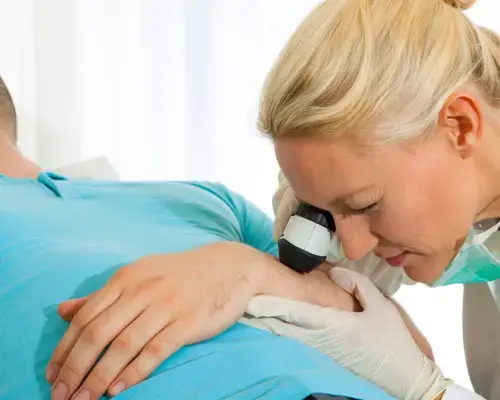
With teachings from the world’s most influential dermoscopy experts, learn how to independently and competently diagnose most common benign and malignant lesions using dermoscopy.
- Ideal foundation course for practitioners with little knowledge in lesion diagnosis.
- Delivered in collaboration with the International Dermoscopy Society and CPD-accredited.
- Presented by the world's leading dermoscopy experts including Prof Harald Kittler (Austria), Prof Giuseppe Argenziano (Italy), Prof Ashfaq A. Marghoob (USA), A/Prof Iris Zalaudek (Austria), and more.
- This course is for medical doctors, International Medical Graduates, registered nurses, and degree-qualified health professionals.
Fulfils 50 hrs for medical professionals in Australia*
100% online
$2095
Special rates available
80.5 hrs
Self-paced
*provided an outcome measurement activity with a minimum of 5 hours is completed.

- Learn to assess skin lesions, including melanoma, using different algorithms like the Elephant Approach.
- Understand the Chaos & Clues method for simple lesion assessment and faster diagnoses.
- Confidently identify benign non-melanocytic lesions in your patients.
- Learn to spot frequently encountered malignant non-melanocytic lesions.
- Accurately assess and differentiate melanocytic naevi from potential melanomas.
- Provide early intervention to your patients.
This module introduces the history of algorithms for determining whether a skin lesion is benign or suspicious. It explains the evolution of pattern analysis and then focusses on the 3 Point Checklist and the Elephant Approach algorithms. Dermoscopic images are used throughout the presentation and the interpretation of the images using these algorithms is discussed in detail. The module finishes with a self-assessment quiz on dermoscopic lesions to reinforce learning.
This module introduces the Chaos and Clues diagnostic method for identifying whether a skin lesion is benign or suspicious. This algorithm is based on revising pattern analysis to identify chaos, clues and exceptions, to assist with the diagnosis and management of skin lesions. Extensive images and examples are provided. In this module, the Chaos and Clues method is used to assess pigmented skin lesions such as melanomas, pigmented basal cell carcinomas (BCCs) and pigmented squamous cell carcinoma (SCCs). The module also considers the four exceptions when considering a biopsy.
This module identifies the four most common types of benign non-melanocytic skin lesions commonly seen in daily practice. It explains in detail the use of dermoscopy in diagnosing seborrheic keratosis, dermatofibroma, vascular tumours and sebaceous hyperplasia including numerous dermoscopic images. The module explains the factors influencing the prevalence and morphology of these benign lesions. The module concludes with three management rules to follow in order not to miss melanoma that mimics a benign non-melanocytic tumour.
This module focuses on malignant non-melanocytic skill lesions commonly seen in daily practice. It explains in detail the use of dermoscopy in diagnosing keratinocyte carcinomas, basal cell carcinoma and squamous cell carcinoma. Dermoscopic images and pattern analysis are used throughout the presentation to differentiate between benign and malignant skin lesions.
This module focusses on the classification of melanocytic naevi based on dermoscopy pattern, morphology, colour, and pigmentation distribution. The module outlines dermoscopic features of congenital nevi and acquired nevi. Dermoscopic images are used throughout the presentation to discuss the different classifications of congenital nevus and appropriate action to manage them.
This module focuses on the dermoscopy of facial lesions. The topic is divided into four categories; pigmented flat facial lesions, pigmented mucosal lesions, non-pigmented neoplastic lesions, and non-pigmented non-neoplastic lesions. Each category is discussed in detail, and dermoscopic images are used throughout the presentation in identifying the differential diagnoses of skin lesions. The pattern analysis method is also outlined in this module and is used to identify different lesions on the face.
This module explains the basic variations of acral melanocytic lesions which includes acral nevus and acral lentiginous melanoma. It briefly outlines the differential diagnoses of some melanosis such as Peutz Jeghers syndrome, Laugier Hunziker Baran syndrome, and drug-induced melanosis. The module then focusses on the dermoscopy of acral lesions which is divided into four criteria: parallel-furrow pattern regular or irregular and parallel-ridge pattern regular or irregular. The parallel patterns are discussed in this module and are used to identify whether a skin lesion is melanoma, haematoma, or a pigmented wart.
This module describes the dermoscopic features that are commonly seen in melanoma. It focusses on the patterns and structures encountered in melanoma. Most melanomas will reveal at least one of ten melanoma- specific structures. Throughout this module, each of these ten melanoma-specific structures are discussed in detail including numerous dermoscopic images to demonstrate learning. Various dermoscopic tools are discussed. Eight management rules to assist with the detection of melanoma are outlined.
If you're not interested in pursuing a full certificate in this field but simply want to enhance your skills in specific topics covered in this course, you can access the content of this and other courses for a flat fee of $83 per month (paid annually) within HealthCert 365.


Professor of Dermatology, Department of Dermatology and Venerology, Head of Research Unit, Medical University of Graz, Austria
Professor Rainer Hofmann-Wellenhof is Professor of Dermatology in the Department of Dermatology at the Medical University of Graz, Austria. He has been a dermato-oncologist for 10 years and has a special interest in pigmented skin lesions, dermoscopy and skin culturing. Rainer is also Director of the Pigmented Skin Lesion Clinic at the Department of Dermatology in Graz.
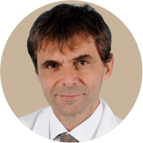
Professor at the Department of Dermatology, Medical University of Vienna, Austria
Professor Harald Kittler has a special clinical interest in dermoscopy of pigmented skin lesions. His main research interest is digital dermoscopy, follow-up of pigmented skin lesions, and computer assisted digital dermoscopy. Harald has been working for 10 years in the field of dermoscopy and has published a number of scientific articles especially in the field of digital dermoscopy and dermoscopic follow-up of melanocytic nevi.
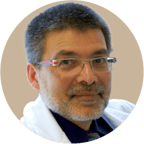
Attending Physician, Dermatology Service, Memorial Sloan Kettering Skin Cancer Center, New York, USA
Professor Ashfaq A. Marghoob is a board-certified dermatologist specialising in the diagnosis and treatment of cancers of the skin. He is the director of Memorial Sloan Kettering’s regional skin cancer clinic in Long Island and consults and treats patients in the centre’s outpatient facility in Manhattan.
Although providing the best care possible for his patients remains his primary goal, Ashfaq also remains committed to education and clinical research, with the hope of educating physicians and the public about the importance of early skin cancer detection to save lives.
He is active in clinical research and has published numerous papers on topics related to skin cancer with an emphasis on melanoma, atypical/dysplastic nevi, and congenital melanocytic nevi. Ashfaq’s research interests are focused on the use of imaging instruments such as photography, dermoscopy, and confocal laser microscopy to recognise skin cancer early in its development.
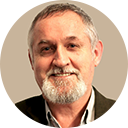
Professor and Course Coordinator MMed (Skin Cancer) Program School of Medicine, The University of Queensland
Professor Cliff Rosendahl currently works in Brisbane as a primary care practitioner with a special interest in skin cancer. He also has an interest in research as the clinical developer and Director of the Skin Cancer Audit Research Database (SCARD). His other main area of research has been in evaluating dermatoscopic clues for the diagnosis of both pigmented and non-pigmented skin malignancy in collaboration with colleagues at The University of Queensland, Australia and the Medical University of Vienna, Austria.

Professor of Dermatology, Tokyo Women's Medical University Medical Center East, Japan
Professor Masaru Tanaka graduated in 1984 at the Keio University School of Medicine, in Tokyo, Japan. He became a board-certified dermatologist in 1989 and obtained a degree in Medical Science in 1992. He studied image analysis at the Department of Dermatology, University of Wales College of Medicine, in the UK for two years. Masaru was the Congress Secretary of the 100th Japanese Dermatological Association in Tokyo in April 2001. He is now a Professor of Dermatology at the Department of Dermatology, Tokyo Women's Medical University Medical Center East, Japan. His main research fields include the bullous disorders, contact dermatitis, dermatopathology, image analysis and dermoscopy.

Head of the Dermatology Clinic of the University of Trieste, Italy
Associate Professor Iris Zalaudek is a board-certified dermatologist and Head of the Dermatology Clinic of the University of Trieste, Italy. Since 2016, she has been President of the International Dermoscopy Society, and was previously the Research Director of the Non-Melanoma Skin Cancer Unit at the Medical University of Graz, Austria.
Her main research fields are related to dermato-oncology and include non-invasive skin imaging techniques, as well as topical and systemic treatment of skin cancer. Moreover, she is engaged in the development of modern teaching methods such as online distant courses and tele-dermatologic services. She is Director of the Master of Science program entitled "Dermoscopy and Preventive Dermato-Oncology" of the Medical University of Graz, Austria.
Iris has published more than 450 articles, of which 358 (267 full papers) have been cited in PubMed. Her combined publications have received an impact factor of 1003 and a h-index value of 36 (by April 2017). In 2003 her work was awarded by the Hans-Weitgasser Price from the Styrian Association of Dermatologists and in 2008 she was awarded the Best Researcher of the Medical University of Graz, Austria.

Study at your own pace and to your own schedule. Interactivity, discussion, and feedback opportunities are included.

Easily meet your CPD requirements and gain valuable skills – all in one place for $83 per month.
$2095
.
*provided an outcome measurement activity with a minimum of 5 hours is completed.
Bundle two courses and save 5%, or three courses and save 10% upon enrolment.
Talk to us about deferred payment options, registrar scholarships and special rates.
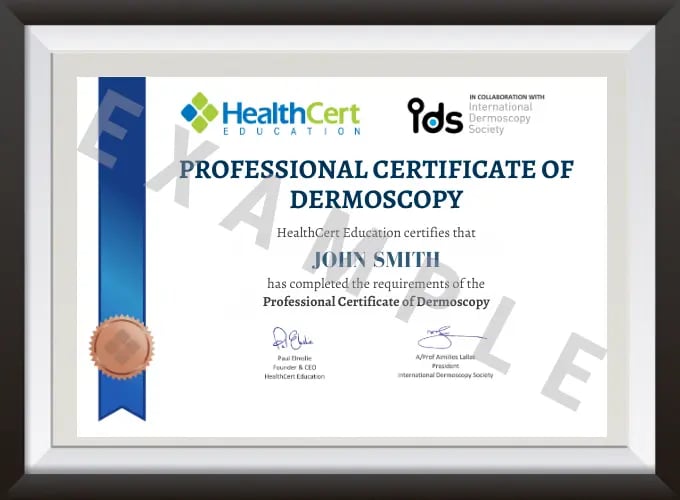

An excellent course introduction to dermoscopy and relating what you see to the histopathology and applying this in clinical practice. Great lectures and supporting materials.
Dr S. Jan
Excellent! This is a great course that has helped me diagnose many more subtle, early skin cancers especially melanoma in situ. The course was clearly presented, with good pictures and course book. All HealthCert's skin cancer courses have been hugely valuable to my practice!
Dr R. Mundell
I highly recommend this course. I increased my knowledge and developed confidence in using dermoscopy and in diagnosing melanoma and other skin lesions. Every skin lesion I see means so much more now that it has a name. Great involvement from various skin cancer experts and great videos and reference materials.
Dr P. Ishri
I would recommend the Professional Certificate of Dermoscopy as an important addition to self-directed learning in dermatoscopy. It was a invaluable course to gain the diagnostic tools, knowledge and confidence in managing skin cancer. The course was professionally conducted with excellent presentations.
Dr L. Suntesic
I really enjoyed the level of learning. It is very rewarding to know that I am potentially saving lives. Recently I volunteered with the Lions Cancer Institute for two days, and we screened 158 patients, detected 38 possible melanomas and 83 keratinocyte skin cancers. It was a very successful and rewarding two days, and something I could do confidently because of my learning from this course.
Dr K. Laverty
| RACGP Activity Number | ACRRM Activity Number | Activity Title | Education Hours | Performance Hours | Outcome Hours | ||
|---|---|---|---|---|---|---|---|
| 403783 | 28433 | Acral lesions | 403783 | 28433 | 3.5 | 6 | 0 |
| 403786 | 28434 | Melanoma | 403786 | 28434 | 4.5 | 6 | 0 |
| 403766 | 28428 | The Chaos and Clues method | 403766 | 28428 | 4.5 | 6 | 0 |
| 403764 | 28427 | Algorithms and the elephant approach | 403764 | 28427 | 4 | 6 | 0 |
| 403772 | 28430 | Malignant non-melanocytic lesions commonly seen in the practice | 403772 | 28430 | 4 | 6.5 | 0 |
| 403778 | 28432 | Facial lesions | 403778 | 28432 | 4.5 | 6.5 | 0 |
| 403769 | 28429 | Benign non-melanocytic lesions commonly seen in the practice | 403769 | 28429 | 3.5 | 5.5 | 0 |
| 403775 | 28431 | Melanocytic nevi | 403775 | 28431 | 4 | 5.5 | 0 |
| 800429 | 32973 | Acral Lesions Outcome Improvement Activity | 800429 | 32973 | 0 | 0 | 8.5 |
| Total hours | 32.5 | 48 | 8.5 | ||||
The purpose of outcome measurement activities is to improve your clinical confidence in managing an identified learning gap. Outcome measurement activities are not a requirement of our Professional Certificate of Advanced Certificate courses; they are a requirement for Australian CPD purposes.
HealthCert Education provides a variety of outcome measurements activities to suit your needs:
The Professional Certificate of Dermoscopy is suitable for medical professionals who are interested in primary care dermoscopy for the management of skin conditions commonly seen in day-to-day general practice. The course is suitable for medical doctors and the degree-qualified nurses and dermal therapists who work under their supervision, other degree-qualified health professionals with an interest in skin, as well as for International Medical Graduates. There are no prerequisites for this course.
Participants do not have to pass an IELTS test but, as the courses are delivered in English, proficiency in listening, reading and writing English is assumed.
Participants will require access to a computer/laptop, an internet connection and a basic level of technology proficiency to access and navigate the online learning portal.
Doctors who have completed the UQ Certificate of Advanced Dermatoscopy and Histopathology or other formal dermoscopy training can receive academic credit towards the Professional Diploma (the final course in the three-part program) if they achieve a pass mark in the exams of the first two certificate courses: the Professional Certificate of Dermoscopy and the Advanced Certificate of Dermoscopy. Upon successful exam completion doctors can directly progress to (and will only need to pay for) the Professional Diploma of Dermoscopy course.
NOTE: While the Professional Certificate of Skin Cancer Medicine course covers Dermoscopy, it does not qualify for RPL in the Certificate and Professional Diploma of Dermoscopy program which quickly moves on to more advanced dermoscopy techniques, including the Chaos and Clues method and the assessment of lesions on the face and acral sites. Professional Certificate of Skin Cancer Medicine alumni should begin with the Professional Certificate of Dermoscopy course.
Further professionally recognised qualifications and prior studies may be recognised for entry into this course if the learning outcomes match exactly. Please ask a HealthCert Education Advisor for an individual assessment of your prior qualifications and experience.
This certificate course meets the minimum 50 hours CPD annual requirement across all three mandatory CPD activity types, provided an outcome measurement activity with a minimum of five hours is completed. You may use an optional HealthCert outcome measurement activity or develop your own.
Outcome measurement activities are not a requirement of Professional or Advanced Certificates.
Upon successful completion of the course requirements, course participants will receive the certificate of the Professional Certificate of Dermoscopy.
This certificate course:
Australia-based course participants, please note that HealthCert certificates are not accredited by TEQSA or ASQA and do not fall within the Australian Qualification Framework. All HealthCert certificates are professional development awards, accredited by RACGP, ACRRM and RNZCGP.
To learn more about the delivery of certificates in Australia and overseas, please visit our FAQs.
Professional Diploma Pathway
This course is the first stage of the three-part professional diploma pathway. The full pathway is Professional Certificate of Dermoscopy, Advanced Certificate of Dermoscopy, and Professional Diploma of Dermoscopy.
RPL with The University of Queensland
The University of Queensland Master of Medicine (Skin Cancer) includes the unit IMED7002: Clinical and Dermatoscopic Diagnosis in Skin Cancer Practice. Credit precedence has been established for this subject if students have completed all three of the following HealthCert dermoscopy qualifications: Professional Certificate of Dermoscopy, Advanced Certificate of Dermoscopy and Professional Diploma of Dermoscopy to the unit IMED7002. Doctors who have applied and been accepted into the Master of Medicine (Skin Cancer) program may apply for Recognition of Prior Learning for IMED7002. View The University of Queensland's Master of Medicine (Skin Cancer) program here.
Master of Medicine (Skin Cancer)
Doctors who complete the HealthCert Professional Diploma programs in Dermoscopy, Skin Cancer Medicine and Skin Cancer Surgery will receive RPL for the units IMED7002, IMED7010, and IMED7011, which are high-level subjects in the Master of Medicine (Skin Cancer) at The University of Queensland. The Master of Medicine is open only to registered medical practitioners with at least two years' postgraduate experience. View The University of Queensland, Master of Medicine (Skin Cancer) program.
Please note, only HealthCert Education qualifications completed within the last ten years can be recognised.
HealthCert Clinical Attachments
Course participants who successfully complete the HealthCert Professional Certificate of Skin Cancer Medicine may continue their professional development by completing a HealthCert Clinical Attachment at a clinic or university teaching hospital to further develop professional knowledge. A HealthCert Australian Clinical Attachment is recommended as the first clinical attachment after completing the HealthCert dermoscopy qualifications and a HealthCert International Clinical Attachment is recommended for subsequent clinical attachments.
This organisation is an RACGP-accredited CPD provider under the RACGP CPD Program.

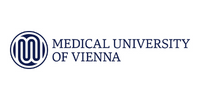
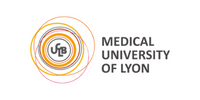



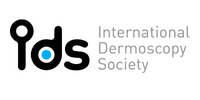
Don't see your question? Explore other faqs or talk to us.
Fees will vary based on the program and study option selected (fully online vs online + optional practical workshop). Payments can be made upfront or in monthly instalments. Special rates and various payment options are available. GP registrars and doctors in training enjoy a scholarship of up to $500. Talk to us to learn more.
Completion of any HealthCert course or attendance at an event will enable you to access the HealthCert Alumni Program which includes:
HealthCert Education is pleased to issue digital credentials for alumni. Digital credentials are a permanent online record of your successful completion of a HealthCert course and are issued to all course participants in addition to PDF certificates. If you are based in Australia, you also have the option to order a hard copy of your digital certificate for a small additional fee.
The recommended study duration of this certificate course is 80.5 hours, which includes study of the pre-course activities and readings, online lectures, live tutorials, and online assessment. This self-paced course offers the flexibility of 100% online study in your own time, at your own pace, in your own home or office, with no mandatory face-to-face requirements. You are not required to be online at specific times but can view and replay video lectures at your convenience.
All HealthCert courses meet World Federation of Medical Education standards. This certificate course qualifies for CPD hours from the Royal Australian College of General Practitioners (RACGP) and the Australian College of Rural and Remote Medicine (ACRRM) in Australia. It is recognised by the Royal New Zealand College of General Practitioners (RNZCGP) in New Zealand. It is recognised by the Hong Kong College of Family Physicians (HKCFP) in China. It is a self-submitted activity in Dubai and the United Kingdom. It is a self-submitted activity through the College of Family Physicians in Canada. If you live or work outside one of the above-mentioned countries, please contact us on admin@healthcert.com to discuss whether this course can be recognised in your country.

In this webinar and Q&A, solicitor and former regulator David Gardner provides exclusive insights...
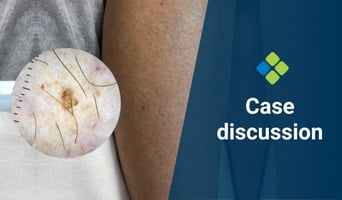
This week's case discussion, submitted by Dr Heather Lawson, features a 64-year-old female patient...

Mood changes in the postpartum period are extremely common, ranging from mild and transient “baby...
Want to stay up-to-date with the latest case studies, podcasts, free video tutorials and medical research articles pertinent to primary care?
Our Education Advisors can assist you with any queries and tailor our education pathway to suit your current expertise, interests and career goals.